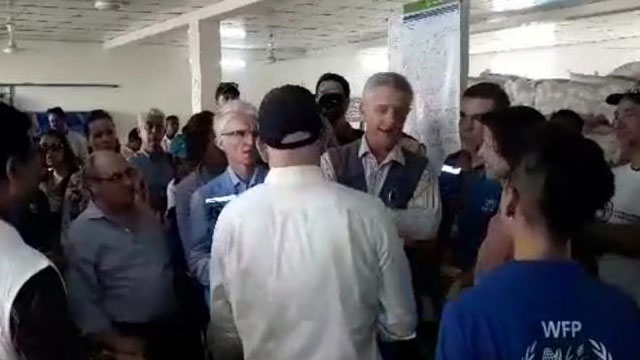Visiting three top UN officials have urged the donors to do more and act faster to share the burden that Bangladesh is shouldering due to presence of huge number of Rohingya people in the district.
Heads of three UN agencies – Filippo Grandi, United Nations High Commissioner for Refugees, Antonio Vitorino, Director General of International Organization for Migration (IOM) and Lowcock, Head of United Nations Office for the Coordination of Humanitarian Affairs (OCHA) and Emergency Relief Coordinator -- are jointly visiting Rohingya camps.
"High prices, deforestation, traffic jams, insecurity... visiting Cox’s Bazar, once again, shows the dramatic impact on local communities hosting Rohingya refugees. @IO Mchief @UN Relie fChief and I are calling on donors to do more (and act faster) to share this burden," Grandi tweeted.
They will brief media on their visit at a hotel on Friday afternoon.
Foreign Minister Dr AK Abdul Momen on Thursday said those who are opposing the relocation of Rohingyas to Bhasan Char Island should take the responsibility if there is any casualty in Cox's Bazar camps during monsoon.
“If people die due to landslides following heavy rainfalls, we’ll not be responsible. You - who are creating barriers - should be responsible. This is your responsibility,” he conveyed to visiting three top UN officials during his meeting with them.
The Foreign Minister also encouraged the UN officials to visit Myanmar saying Bangladesh is doing everything that is necessary forRohingyas.
On Wednesday, they met Prime Minister Sheikh Hasina and State Minister for Foreign Affairs Shahriar Alam.
Bangladesh said the relocation of Rohingya people to Bhasan Char Island will help address the congestion problem in Cox’s Bazar Rohingya camps.
Bangladesh also informed the visiting three top UN officials that the government of Bangladesh has already developed Bhasan Char island to accommodate some 1,00,000 Rohingyas.





